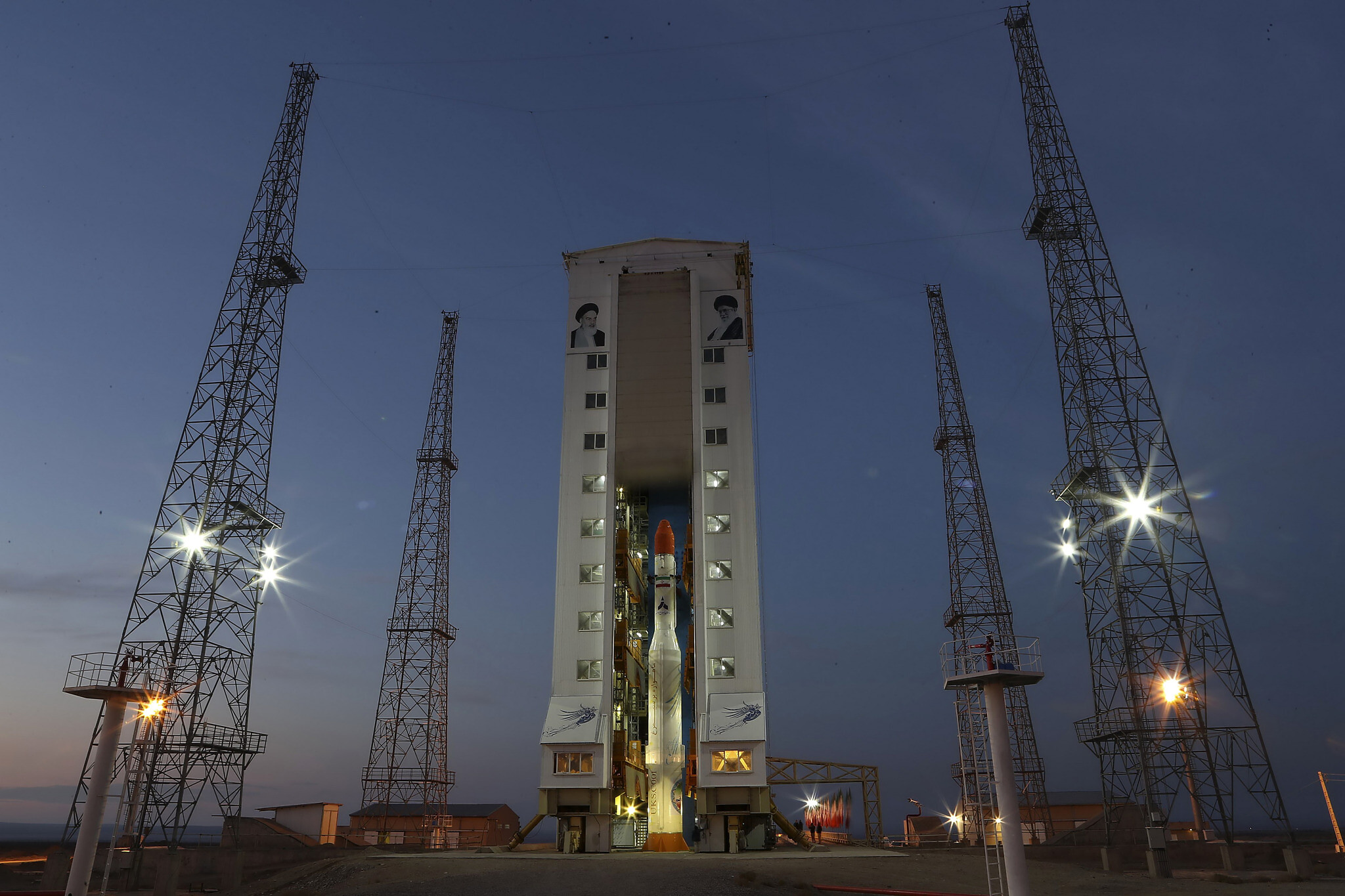Iran has dismissed media reports suggesting that Moscow will use its satellite to assist in Russia's war in Ukraine.
In its statement issued on Sunday, the Iranian Space Agency (ISA) said that the satellite, dubbed "Khayyam" after a 12th-century Persian mathematician, will be fully controlled by Iranian experts and technicians “from the first day” of its launch on August 9.
“All orders related to the control and operation of this satellite will be carried out and issued from day one and immediately after launch by Iranian experts based in Iran’s… space bases,” the ISA said in the statement.
“No other country will have access to such information, and rumors about using satellite images for another country's military purposes are false,” the agency added.
Last week, Russian state corporation Roscosmos announced its plans to launch Iran’s Khayyam satellite onboard its Soyuz-2.1b rocket from the Baikonur Cosmodrome in Kazakhstan on August 9. The rocket will also carry 16 smaller spacecraft, designed by various colleges, commercial companies and non-profit organizations.
The Khayyam satellite, equipped with accurate measurement devices, aims to improve Iran’s capabilities in management and planning in the fields of agriculture, natural resources, environment, mining, border monitoring and natural disasters.
The statement also revealed that Iranian military forces would pursue their own unique path in obtaining the satellite imagery required for their technical and strategic needs.
The statement came after the US-based Washington Post issued a report, claiming that Russia, which is responsible for the launch of the Khayyam satellite, will use the satellite for its own purposes in an ongoing military conflict in Ukraine. According to the report, the new satellite will provide Tehran with “unprecedented capabilities, including near-continuous monitoring of sensitive facilities in Israel and the Persian Gulf.” But Moscow would first use the satellite to “enhance its surveillance of military targets” in the Ukraine conflict.
Tehran has long asserted that its space program is aimed at civilian and defense goals only and does not breach the 2015 nuclear deal between Iran and world powers, or any other international agreement.
Meanwhile, previous launches were met with disapproval from Western governments, arguing that satellite launch systems incorporate technologies that are interchangeable with those used in ballistic missiles capable of delivering a nuclear warhead. Iran has repeatedly denied that its space activity is a cover for ballistic missile development.
Iran successfully put its first military satellite into orbit in April 2020, placing the Noor, or “light” in Persian, in an orbit of 425 kilometers above the earth’s surface. In March, Tehran announced it had successfully put a military “reconnaissance satellite", known as "Nour-2", into orbit 500 kilometers from earth. According to the Space Commander of the Revolutionary Guards’ Aerospace Force, Ali Jafarabadi, Iran is planning to send a series of military satellites into orbit over the coming years.







 Iran's senior military leaders described the drone and missile attack on Israel on April 14 night as “successful".
Iran's senior military leaders described the drone and missile attack on Israel on April 14 night as “successful".
 The number of evacuees from flooded areas in Kazakhstan has reached 97,852 people, including about 32,856 children since March 27.
The number of evacuees from flooded areas in Kazakhstan has reached 97,852 people, including about 32,856 children since March 27.
 Azerbaijan officially unveiled the logo for the upcoming 29th session of the Conference of the Parties to the United Nations Framework Convention o...
Azerbaijan officially unveiled the logo for the upcoming 29th session of the Conference of the Parties to the United Nations Framework Convention o...



